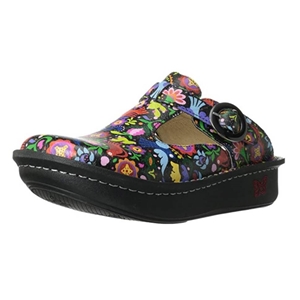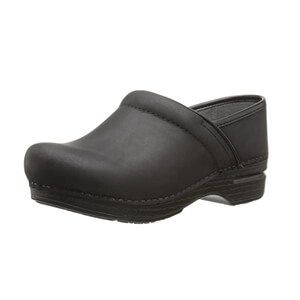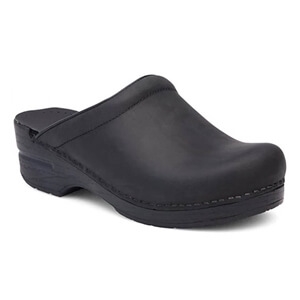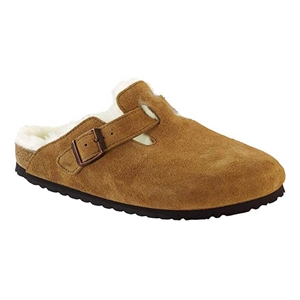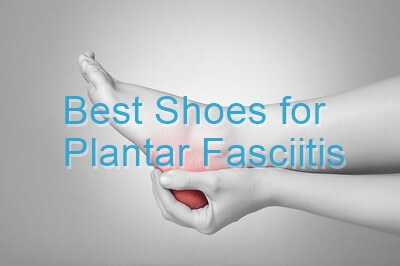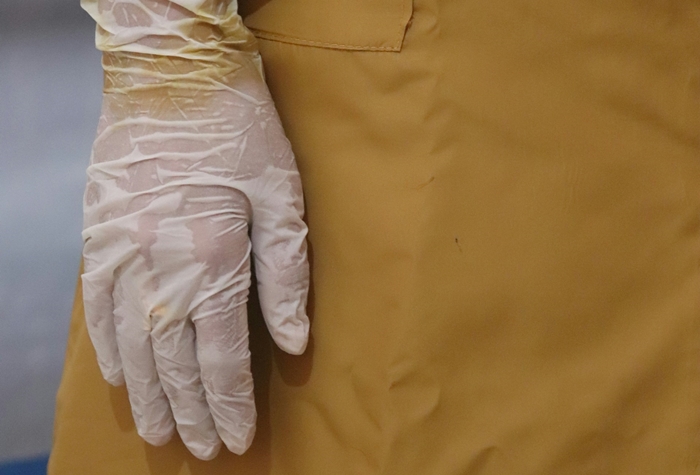Your feet are the first part of your body’s support system and carry all of your weight, as well as anything you happen to be carrying. Considering your feet are relatively small, this is a lot of pressure to put on them and the rest of your body, especially your knees, hips, and lower back.
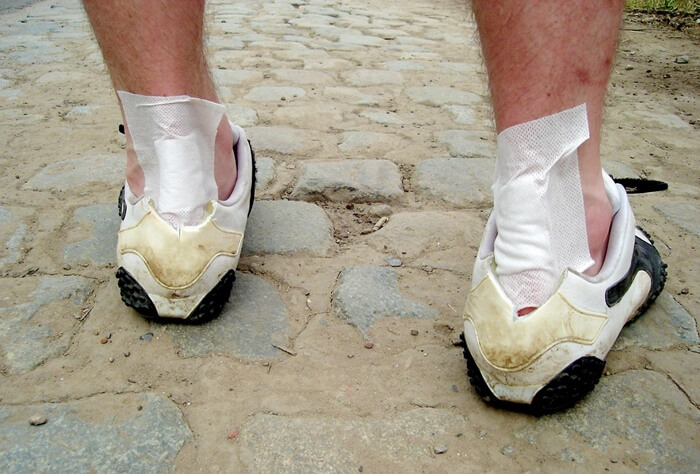
The right pair of shoes can significantly help support and properly distribute this weight and provide shock absorption as you walk or run around during your day.
But how affected is your body by the shoes you wear, and could a poor choice of shoes seriously impact your daily life and future health?
What Is The Impact Of Bad Shoes On Your Body?
Shoes provide many benefits to your body that some people may play off as unneeded because humans evolved without shoes, so how beneficial can they really be to us?
A great pair of shoes can be hugely beneficial, while the wrong pair of shoes could be much worse than bare feet and lead to chronic issues that will hinder your life as you get older and cause pain, discomfort, and immobility in the short term.
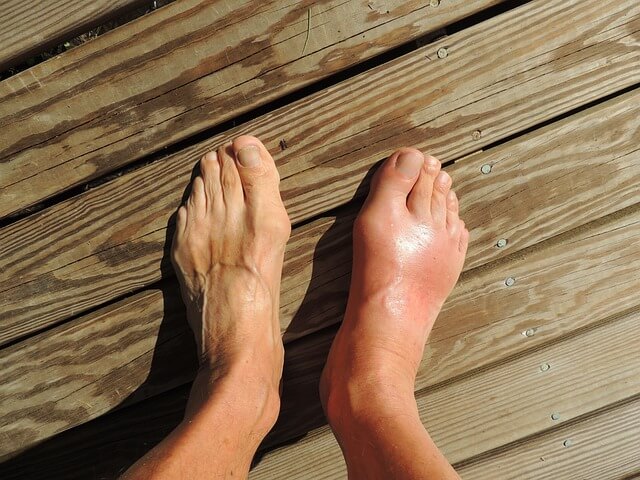
Your body is fully connected rather than being individual pieces stuck together, so if you damage or position yourself incorrectly, that can have ramifications throughout your body. Shoes put your feet, legs, hips, and even back into specific positions and shift or balance where pressure is placed.
How A Pair Of High Heel Shoes Can Impact Your Body
As an example, a pair of high heel shoes with a very high and thin heel is very unstable, doesn’t provide any type of support or shock absorption, and forces almost all of your weight onto the ball of your foot.
Frequent earring of high heels results in a single tiny point on your foot taking all of your weight. It can shorten your achilles tendon and stiffen it up, which may lead to further debilitating injury, and due to the shift in your center of gravity, your balance and posture are negatively impacted.
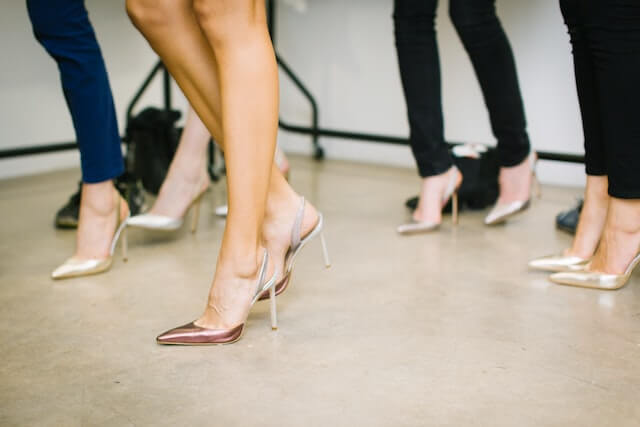
You may also find that the muscles around your ankles can also become overstressed and damaged. The nerves in your feet can be impacted and lead to desensitization, tingling, and other neuropathic issues.
These types of issues aren’t only found in high heel shoes, but are common across most ill-fitting and inappropriate shoes. The problems are exasperated the longer you wear the shoes and the further you go in them.
What Can Bad Shoes Impact On Your Body?
Defining what a bad shoe means can be challenging, but typically you want a good fitting shoe that isn’t too tight but isn’t too loose and lets your feet flop around inside.
The shoe should provide support and cushioning to the various parts of your foot and keep your feet relatively flat, so you can walk naturally but with the added support of the shoe.
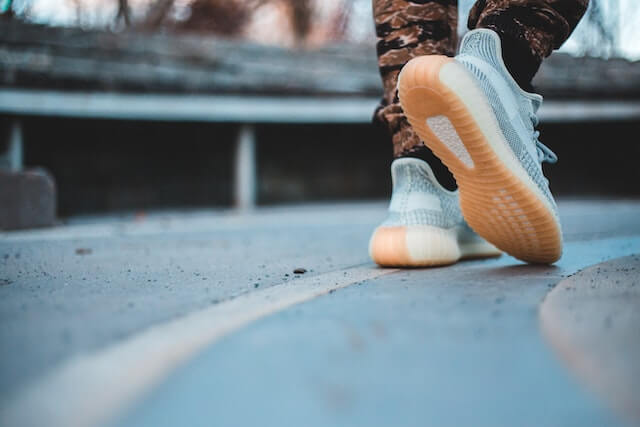
Your shoe should also take into account the differences or problem areas of your foot, for some people, they have flat arches in their feet, so they require extra arch support.
You can also typically find shoes for the specific activity or work that you’re doing, so if you’re a nurse finding a good pair of nursing shoes is going to be one of the best options, rather than a pair of standard sneakers.
Short-Term Problems Caused By Bad Shoes
Putting on a pair of bad shoes can quickly cause problems that may take months to resolve, and in the meantime, you’re limiting your movement and causing yourself pain.
- Blisters are an extremely common issue from poor fitting shoes where the shoe keeps rubbing against your skin and causing irritation.
- Corns are a certain type of callous that forms as hard bumps under your skin; they can be very painful and, if left untreated, can cause problems in your joints in the long term.
- Athlete’s Foot can develop due to shoes that are too tight, and your feet sweat and allow the fungus to grow, resulting in an itchy and contagious rash.
- Hammertoes are when your toes are forced to bend out of shape due to very tight-fitting shoes, and the longer you leave hammertoes, the worse the problem will become and the more difficult it will be to resolve.
- Bunions are hard bumps that form at the base of your toe and are caused by too-tight shoes, this is actually your joints and bones complaining about the tightness.
- Ankle Pain can be a problem caused by uncomfortable or ill-fitting shoes, your walk adjusts to the shoes, and strain is placed in uncommon or weak areas of your ankle.
- Ingrown Toenails can be very painful and cost a lot of money to have fixed. A common cause is shoes that are too tight, especially around the toe box of your shoe.
- Nail Fungi can get a foothold into your toenails due to tight shoes that weaken the toenails. If left untreated, the nails can be completed lost and may not return.
Long-Term Problems Caused By Bad Shoes
If you ignore the short-term problems caused by ill-fitting shoes or the wrong type of shoe for your activity, you may start developing long-term problems.
- Joint Pain can be caused by inadequate cushioning and shock absorption in your shoes, and ongoing pressure on your joints can lead to arthritis and other conditions.
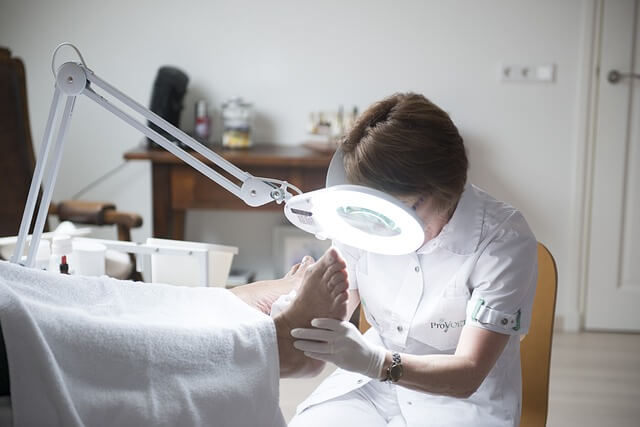
If you’re experiencing pain in your knees, hips, or ankles, then it could be due to pressure being placed on those areas due to them absorbing the shock from walking and running, rather than a good pair of shoes that can be easily replaced.
- Back Injuries, especially in the lower back, can develop due to poor support and too much pressure from poor posture caused by ill-fitting shoes.
- Nerve Damage can present as numbness or excessive tingling in your feet, and tight or narrow shoes are a significant factor in developing nerve damage in your feet.
- Collapsed Arches can happen in childhood but can also be caused later in life by poor quality shoes with poor arch support, especially when you’re heavier or have other health conditions.
Are Good Fitting Shoes Important?
Having a pair of good-fitting shoes that provide the comfort and support you specifically need is hugely important to your current and future overall health. You need your feet and chain of support muscles and joints to be in top shape so that pain and immobility don’t hinder your life.
Most high-quality shoe stores will help you select and fit the correct type of shoe for your foot and the activities you have planned; they can also measure and determine how long and how wide your shoe needs to be for optimal performance.
Shoe stores should also be able to suggest supportive insoles if your feet require additional support in different areas, such as higher arches for flat feet.
You don’t need to be fitted every single time you go shoe shopping, but understanding what size shoe you should be getting is crucial to foot and whole-body comfort at least once.
Frequently Asked Questions
How are our bodies affected by the shoes we wear?
The shoes we wear can have a significant impact on our bodies. When we wear ill-fitting or uncomfortable shoes, it can lead to a range of issues. Improperly fitted shoes can cause foot pain, blisters, calluses, and corns. They can also affect our posture, leading to back, hip, and knee problems. Additionally, shoes with inadequate support or cushioning can contribute to foot conditions such as plantar fasciitis or Achilles tendonitis. It is important to choose shoes that provide proper support, comfort, and allow for natural foot movement to maintain the overall health and well-being of our bodies.
Can wearing high heels have negative effects on our bodies?
Yes, wearing high heels can have negative effects on our bodies. High heels can cause various issues due to the unnatural foot position they create. Wearing high heels regularly can lead to foot pain, bunions, hammertoes, and calluses. The altered posture caused by high heels can strain the lower back, leading to discomfort and potentially long-term back problems. Additionally, wearing high heels can affect the alignment of the knees and hips, potentially leading to joint pain and instability. It is advisable to limit high heel usage and opt for shoes that provide better support and promote a more natural foot position for daily wear.
How can wearing supportive shoes benefit our body's overall health?
Wearing supportive shoes can provide numerous benefits for our body’s overall health. Shoes with proper arch support and cushioning help distribute the weight evenly across the feet, reducing pressure points and minimizing the risk of foot problems. Supportive shoes also promote better alignment, which can alleviate strain on the joints and muscles, reducing the likelihood of back, knee, and hip pain. Furthermore, shoes with adequate shock absorption and stability can enhance balance and reduce the risk of injuries. By prioritizing supportive footwear, we can support the health and well-being of our entire body.
Are there any specific features to look for in shoes to promote good body alignment?
Yes, there are specific features to look for in shoes that promote good body alignment. Firstly, shoes with proper arch support are crucial to maintain the natural curve of the foot and prevent excessive pronation or supination. Additionally, shoes with a cushioned midsole can absorb shock and reduce the impact on the joints. A supportive heel counter provides stability and helps maintain proper foot alignment. It is also important to choose shoes with a proper fit and a wide toe box to allow for natural toe movement. By considering these features, we can select shoes that support optimal body alignment and minimize the risk of strain or discomfort.
Remember, the shoes we wear play a vital role in our body’s well-being. By choosing supportive and comfortable footwear, we can reduce the risk of foot problems, alleviate pain, and promote overall health and alignment.
You may also like
Alegria Donna Women’s Clog Review
This type of Alegria Donna shoes has a good reputation. The female audience usually enjoys…
Dansko Women’s Pro Xp Mule Shoe Review
When one is searching for some comfortable shoe options, one of the best options that…
Dansko Women’s Sonja Oiled Leather Clog Review
Dansko Professional clogs started the Comfort Revolution. In its iconic outline the shoes like the…
Birkenstock Boston Shearling Women’s Slip On Clogs Review
If you’re looking to look radiant when walking – but at the same time very…
Which are the Best Shoes for Plantar Fasciitis to Wear as a Nurse or in General
Spoiler alert: We know that this guide is about the best shoes for Plantar Fasciitis…
Nursing Ethics: Navigating Complex Moral Dilemmas in Healthcare
The Crucial Role of Nursing Ethics Nursing ethics forms the moral compass that guides nurses…
